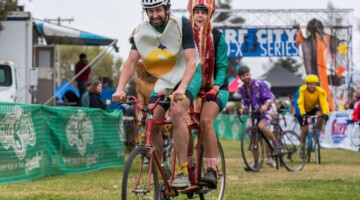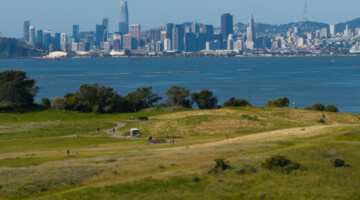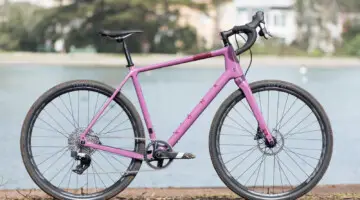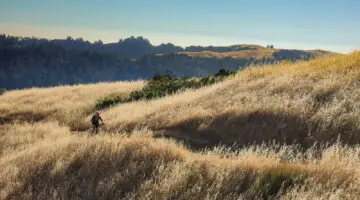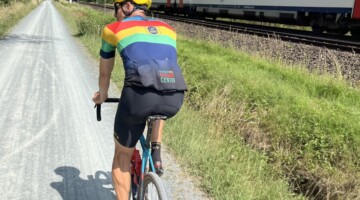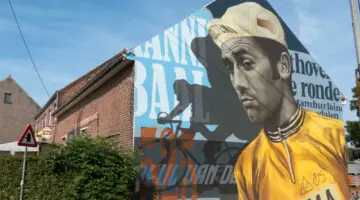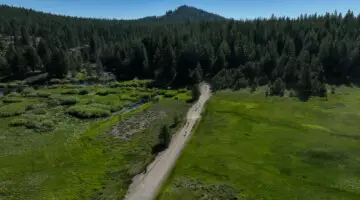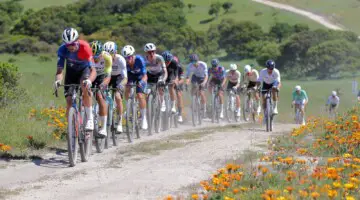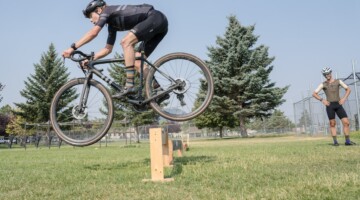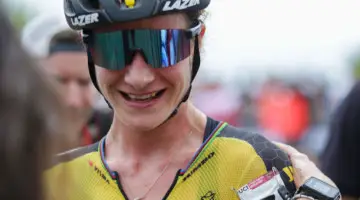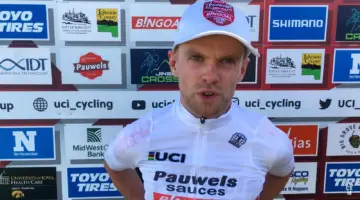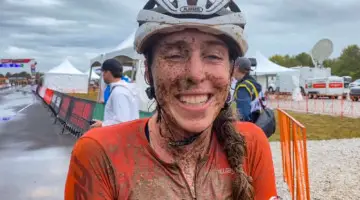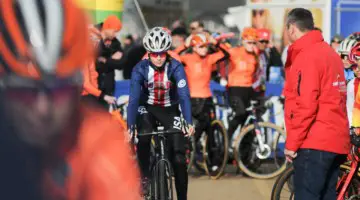The 2018 Reno Cyclocross Nationals were the tenth Nationals Cyclocross Magazine has covered, so we have seen glimpses of how much work goes into putting on a quality week of Nationals racing. Now that we have had a week to settle down after a week in the desert at the 2018 Reno Cyclocross Nationals, we wanted to check in with race director Coby Rowe to ask him how the event went behind the scenes.
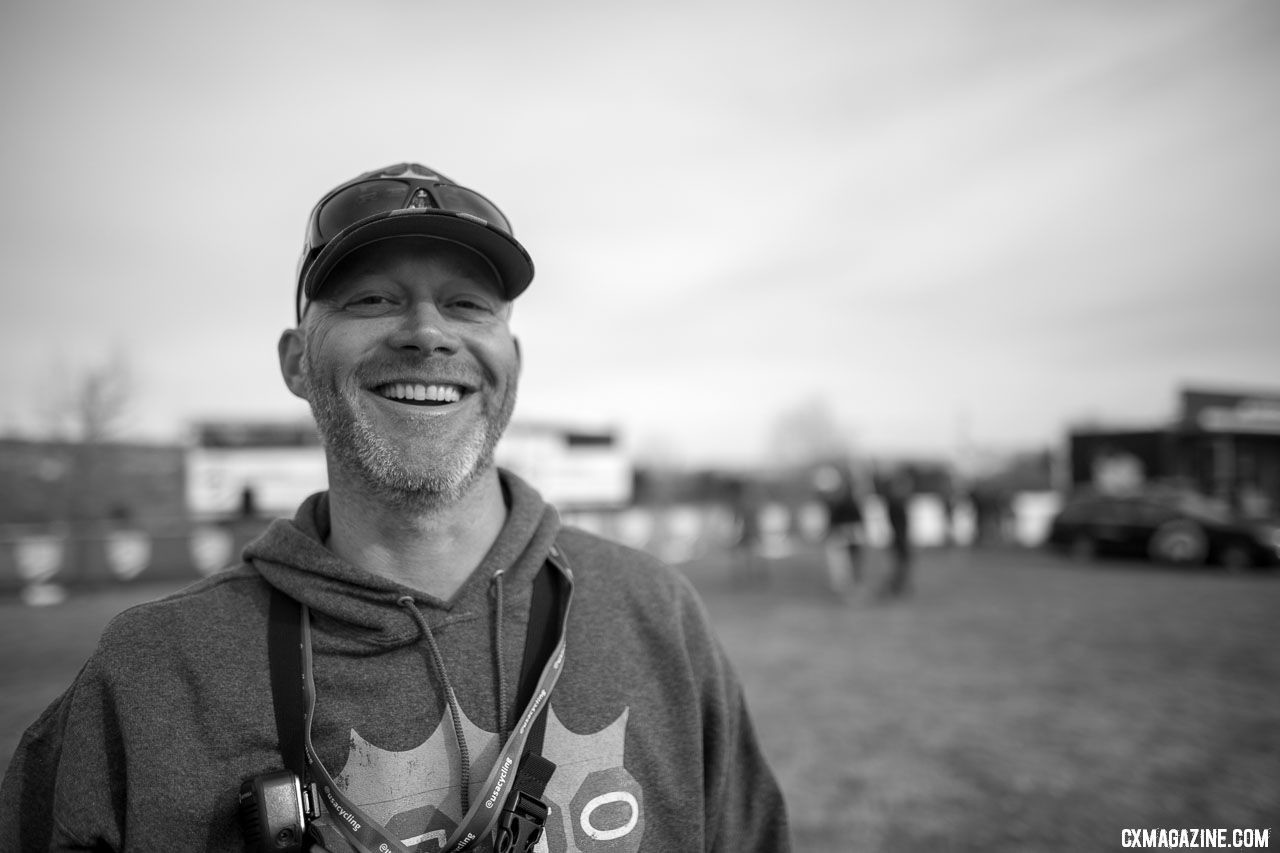
Coby Rowe is all smiles after a successful 2018 Cyclocross National Championships in Reno, Nevada. © A. Yee / Cyclocross Magazine
Many recent Nationals were held in communities with long-established cyclocross scenes, whereas Reno is a city where cyclocross is still growing, and will likely continue to do so with RenoCross coming along with Interbike in 2018. We wanted to ask more about what it took to build interest and get the support of the community and volunteers.
A quick check of participation numbers on crossresults.com shows total participation was down roughly 10 percent versus Hartford in 2017 and 25 percent versus Asheville in 2016 — we are hoping to follow up on this in more detail. We also wanted to get a sense of how the event did financially and what the broader impact of bringing Nationals to Reno was.
Our questions and Rowe’s answers are in the Q&A below.
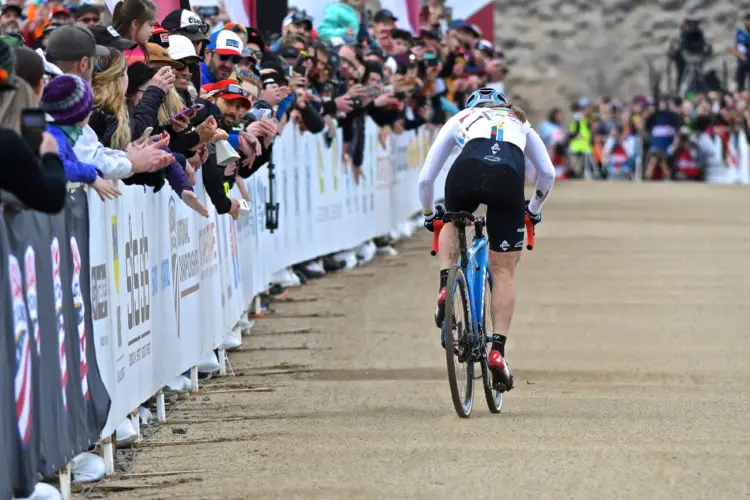
Katie Compton heads down the finishing straight to number 14. 2018 Reno Cyclocross National Championships, Elite Women. © J. Vander Stucken / Cyclocross Magazine
Post-Nationals Q&A with Coby Rowe, 2018 Cyclocross Nationals Race Director
Cyclocross Magazine: This is the first cyclocross event of this magnitude ever to take place in Reno. How did the community respond?
Coby Rowe: The response was amazing. Events like this rely heavily on volunteer support. On the first day of set up we had 50 people show up, and we surpassed USA Cycling’s expectations. The course was largely ready in two days.
The spectator showing was also phenomenal. You could hear the roar from the off-camber section all the way on the other side of the venue. I don’t know that people had any idea how much the northern Nevada community would step up for this event, but our locals love outdoor events. Many of our volunteers had never been to a cyclocross race and this was their first experience, yet they took the time to support the event by helping out. We had volunteers show up from other areas as well, including Oregon and California.
CXM: What was your role in bringing this event to Reno, and how was that separate from USA Cycling’s responsibilities?
CR: I had a meeting with the Reno Tahoe, our convention and visitors authority, three years ago about a different race. That meeting lead to a discussion about bidding on USA Cycling’s Cyclocross Nationals. My role from the beginning was the race director’s role or the Local Organizing Committee Director.
CXM: How many years went into the planning and what was involved?
CR: I started the planning right away in 2015. The Reno Tahoe team and I had decided that Rancho San Rafael Regional Park was the ideal venue due to the landscape and proximity to downtown Reno. I then started traveling to spread the word about Nationals and began assembling a small team of key people to operate the event. We presented to our local County Commissioners and met with law enforcement, medical and potential partners and sponsors to set the stage for a quality, safe, amazing event.
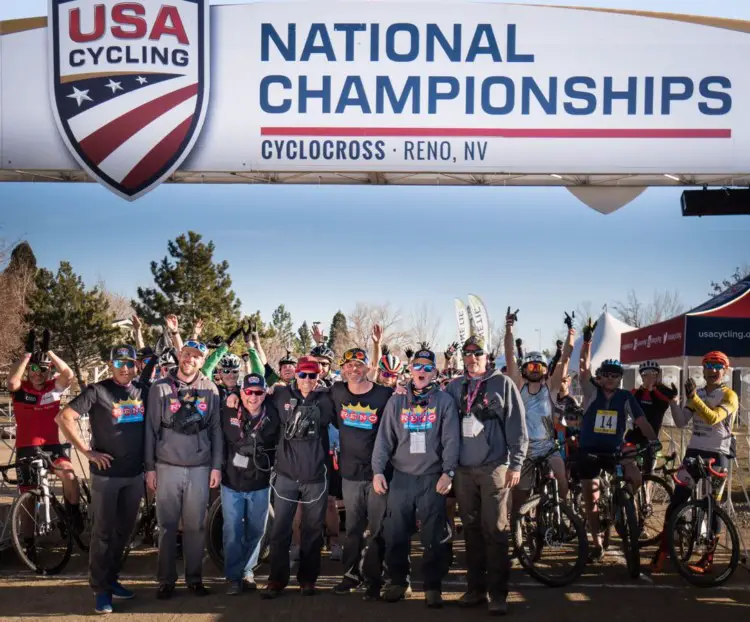
2018 Reno Cyclocross Nationals Operations Team: Darron Sturgeon, John Ward, Ron Patch, Bill Marshall, Coby Rowe, John Kennedy, Brian Armon. photo: cxhairs.com
CXM: It seems like the response to the event from most racers and spectators was positive. What helped put on an event that people enjoyed?
CR: There are a lot of dynamics that come into play when answering that question. First, I had great support from Reno Tahoe. From day one Shelli Fine, Director of Sports Development with Reno Tahoe, was right along side us in all that we were doing. Next, we had a great team of key people who really put their lives on hold to make this race happen.
We had incredible volunteer support including local cyclocross racers, local high school students, the local junior mountain bike development team, Boy Scouts, QBP and Hawley were there every day, NorCal CX and Dorothy of SoCal Cyclocross were there as well. We had in excess of 300 people who volunteered over the course of pre-event all the way through tear down. Our host hotel properties were onboard with our vision for this event and gave us amazing support for our VIP area and after hours events. We were really proud that out-of-towners could enjoy beautiful properties at really reasonable rates.
We were also blessed with amazing weather for January. There was some wind and rain on day one but it was perfect, especially for spectators! Lastly, the key members of the team are the ones who took everything above and shaped it into the 2018 Cyclocross National Championships. This crew was truly exceptional and their passion and dedication was remarkable.
CXM: We’ve heard you praise your operations team and volunteers. What is involved?
CR: Someone told me “surround yourself with great people and the rest is easy.” That quote defines the operations team. Every person on the team works full-time at other jobs and literally put everything on hold to help. Most of their families were involved too. It was inspiring to see volunteers of all ages pitching in to make this a first-class experience for riders, spectators and vendors alike. Every person on the team took every task to the finish and then pitched in across the board to help others. I am really proud to have worked with each and every one of them, they truly are amazing people. A solid operations team and reliable volunteers are integral to the success of an event like this one.
CXM: If you could change anything about the event what would it be and why?
CR: Winter events are challenging. We couldn’t pack the entire expo on the grass because of the unknown weather conditions. In the summer we could have the entire expo together including teams and keep it more compact. All in all it really worked out well the way it was laid out.
CXM: What are estimated spectator numbers and money raised by gate fees, and also economic impact? Did gate fees cover local costs? And did you think about charging per car to encourage carpooling?
CR: We are still working on the final accounting for gate fees and attendance. We should also have an accurate economic impact from Reno Tahoe soon. In talking with athletes and spectators about where they ate or slept, I suspect the economic impact will be significant.
CXM: Once the event was underway, was it what you expected?
CR: Once the event started and everyone was at the venue it was an unforgettable experience. USA Cycling was great to work with. We met twice daily to discuss the operations and challenges that needed to be addressed. Everyday the expectations were exceeded and a lot of that is a compliment to the volunteers and our operations team.
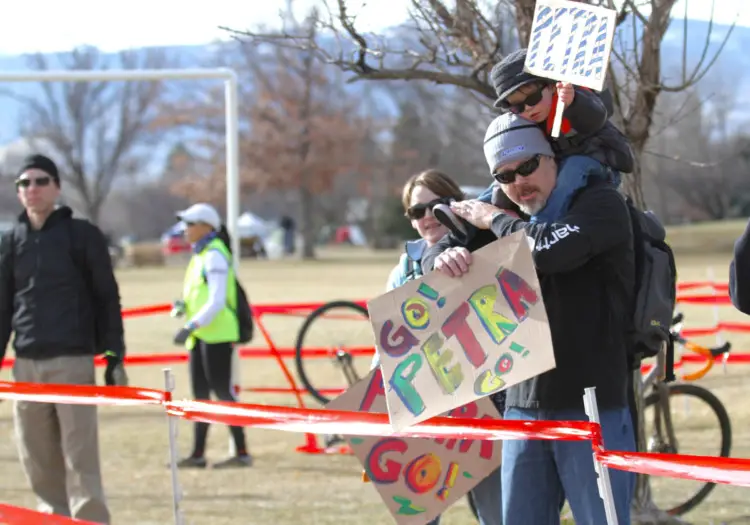
The races brought out enthusiastic crowds each day. 2018 Cyclocross National Championships. © D. Mable/ Cyclocross Magazine
CXM: Flat tires are part of racing, but unfortunately they played a slightly bigger role in this event. For future events at this venue, by Brook or others, do you think there is anything that can be done to mitigate some of the risk and sharp rocks?
CR: I think a lot of flats were coming from the sidewalk crossings as well as the rocks. There were a lot of place that you have to hop or unweight the bike. I do know there will be some changes to Brook’s RenoCross course which should eliminate some of it. When we bring Nationals back, it may be a different look at the hillside as well.
CXM: There’s some confusion in the cycling community between your group, Cross Reno and the former CrossVegas which will now be RenoCross coming to Reno in September. Can you explain the different entities and what role your group has, if any, with these other two groups.
CR: Our operations team has no association with CrossReno. They did two races at Rancho San Rafael but they were not part of our operations for and during Nationals. RenoCross, formerly CrossVegas, is using the same venue [this] year and I have had some involvement as a vendor in the past. RenoCross and I discussed the venue and talked to the parks department together and we truly want to see the success of [its] event because it means great things for Reno and the cycling community.
CXM: Are there any future events in the works for you and your team?
CR: We are currently getting back to our “normal” routines and spending time with our families and friends who supported us while we worked on the race. There have already been a couple conversations about future events and we’ll see how they shape up. A couple of our operations team members were even offered positions at other races to work and advise, which is an incredible opportunity for them. For now, we are taking some time to be proud of this great effort, but you never know what the future holds.
For more from Reno, see our dedicated 2018 Reno Cyclocross Nationals page.

